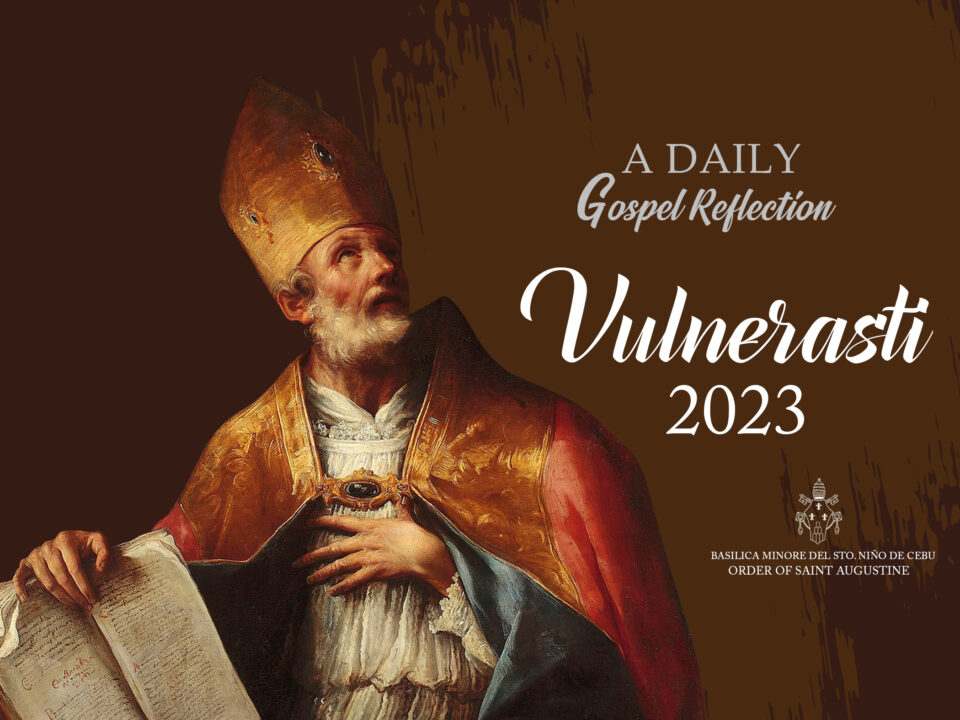Nineteenth Sunday in Ordinary Time

https://goodnewsshared.wordpress.com/2016/08/07/daily-gospel-reading-luke-1232-48/
Today’s Reflection
Gospel: Lk 12:32-48
August 7, 2022 | Sunday
Do not be afraid, little flock, for it has pleased your Father to give you the kingdom. Sell what you have and give alms. Get yourselves purses that do not wear out, and an inexhaustible treasure in the heavens, where no thief comes and no moth destroys. For where your treasure is, there will your heart be also.
Be ready, dressed for service, and keep your lamps lit, like people waiting for their master to return from the wedding. As soon as he comes and knocks, they will open the door to him. Happy are those servants whom the master finds wide-awake when he comes. Truly, I tell you, he will put on an apron, and have them sit at table, and he will wait on them. Happy are those servants, if he finds them awake when he comes at midnight or daybreak!
Pay attention to this: If the master of the house had known at what time the thief would come, he would not have let his house be broken into. You also must be ready, for the Son of Man will come at an hour you do not expect.”
Peter said, “Lord, did you tell this parable only for us, or for everyone?” And the Lord replied, “Imagine, then, the wise and faithful steward, whom the master sets over his other servants, to give them wheat at the proper time. Fortunate is this servant if his master, on coming home, finds him doing his work. Truly, I say to you, the master will put him in charge of all his property.
But it may be that the steward thinks, ‘My Lord delays in coming,’ and he begins to abuse the male servants and the servant girls, eating and drinking and getting drunk. Then the master will come on a day he does not expect, and at an hour he doesn’t know. He will cut him off, and send him to the same fate as the unfaithful.
The servant who knew his master’s will, but did not prepare and do what his master wanted, will be soundly beaten; but the one who does unconsciously what deserves punishment, shall receive fewer blows. Much will be required of the one who has been given much, and more will be asked of the one who has been entrusted with more.
Today’s Reflection:
The Second Reading offers us a classic description of faith: “The assurance of things hoped for, the conviction of things not seen” (Heb 11:1, NRSV). Things which are hoped for and things which are not seen refer to matters that are not empirically verifiable; they cannot be scientifically ascertained. They include beliefs, ideas, questions on the Ultimate Reality we call God. Never can we have a definitive knowledge on God. He is beyond the grasp of human reason. Which begs the question: How can we be assured and convinced of matters on God who is basically unknowable?
Let me attempt an answer to this challenging question by discussing a couple of nuances of the Greek words for assurance and conviction used in this passage. The word for assurance here is “hypostasis” (ὑπόστασις), which can also mean “actual being” (BDAG). This is somehow the sense of the word in Hebrews 1:3, in which Jesus is said to be the imprint of God’s being (ὑποστάσεως). In other words, the unknowable God is somehow revealed in the LordJesus who strongly exhorts us to become his partners in bringing about God’s Reign in the world. Saint Augustine (354-430 CE) described this partnership early on as follows: “God who created you without you, will not save you without you” (Sermon 169). In a way, our assurance of “things hoped for” lies in our participation in bringing about peace, justice, and well-being to the world. We feel assured of the hoped-for things because we ourselves are partners of God in bringing them to fulfilment. We help him usher in the coming into being of the Kingdom of God by caring for the poor, working for justice, and promoting the well-being of all creatures.
What if we feel as if God abandoned us as his partners in the realization of the Kingdom? What if we feel as if God were indifferent to our cries for justice and healing in spite of our active participation in the building up of the Kingdom? Of help in answering these difficult questions is the Greek word for conviction used here, namely, “elegchos” (ἔλεγχος). This word can also be understood as an “expression of strong disapproval or an act of charging or accusing somebody with wrongdoing” (BDAG). On this note, faith in God—that is, conviction of his existence and presence in our life—entails expressing our anger or disgust at his seeming indifference at the injustices in this world. Moreover, faith in God entails accusing him of being inutile when we feel abandoned in times of difficulties. It entails venting out our despairs and frustration when he turns a deaf ear to our pleas for help or healing.
Several biblical figures who are paragons of faith have in fact expressed their disgusts at God’s seeming apathy. For instance, in the midst of injustices and violence inflicted upon the poor, the Prophet Habakkuk gives vent to his anger at God with these words: “O LORD, how long shall I cry for help, and you will not listen? Destruction and violence are before me…. justice never prevails… the wicked oppress the righteous…” (Hab 1:1-4). Job—a man known for being upright and God-fearing—expresses his despair at his pathetic situation and his doubts on God whom he charges for letting him suffer unnecessarily and for refusing to heed his cries for healing. Moreover, in the face of his impending trial and crucifixion, Jesus says that he is deeply grieved and weakened as his death draws near and pleads that the Father spare him from suffering (Mt 26:38-39). Before breathing his last on the cross, he cries out loud in despair: “My God, my God, why have you forsaken me?” (Mt 27:46).
Faith in God, therefore, entails actively collaborating with the Lord in bringing about his Reign and freely expressing our disgusts or complaints whenever we felt as if God abandoned us. This kind of faith, however, is easier desired than achieved. Why? Because this level of faith is achieved only by those who have real and profound experience of God whom we can never fathom but with whom we are deeply connected. (by Fr. Lazaro N. Ervite, OSA) /Vulnerasti, 2022



